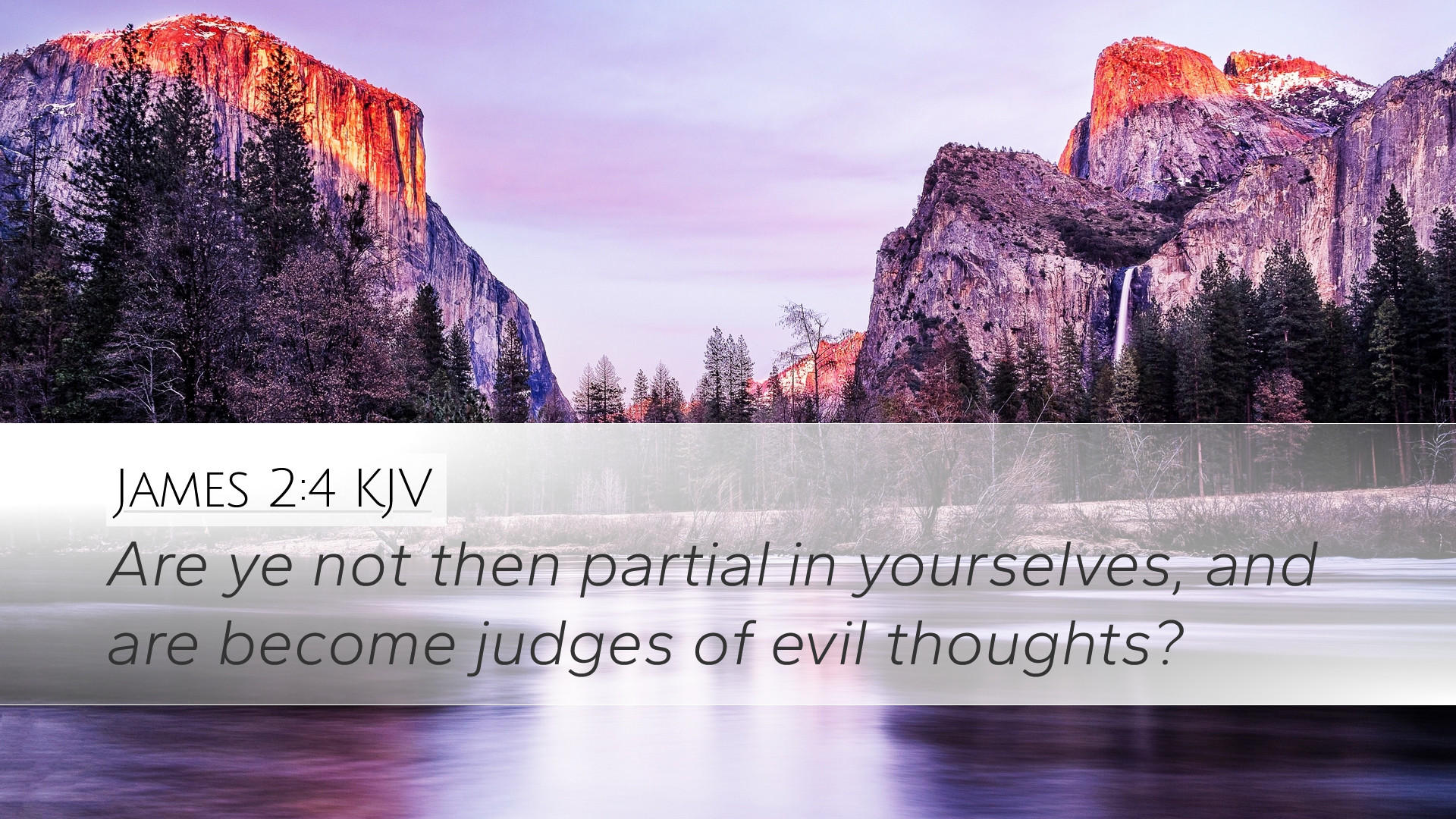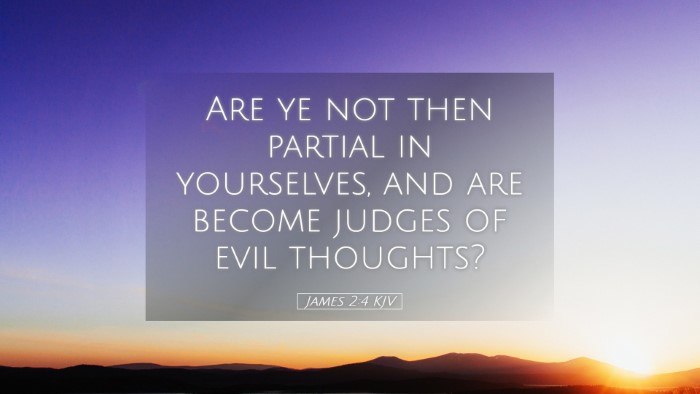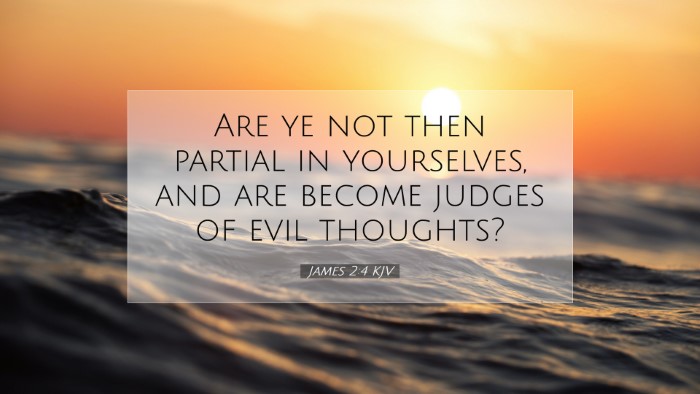Old Testament
Genesis Exodus Leviticus Numbers Deuteronomy Joshua Judges Ruth 1 Samuel 2 Samuel 1 Kings 2 Kings 1 Chronicles 2 Chronicles Ezra Nehemiah Esther Job Psalms Proverbs Ecclesiastes Song of Solomon Isaiah Jeremiah Lamentations Ezekiel Daniel Hosea Joel Amos Obadiah Jonah Micah Nahum Habakkuk Zephaniah Haggai Zechariah MalachiJames 2:4
James 2:4 KJV
Are ye not then partial in yourselves, and are become judges of evil thoughts?
James 2:4 Bible Commentary
Commentary on James 2:4
James 2:4 states, "Are you not then partial in yourselves, and are become judges of evil thoughts?" This verse addresses the critical issue of favoritism and discrimination within the community of believers. The Apostle James challenges the early Christians to reflect on their behavior and attitudes towards others, especially the poor and the wealthy. Below, we provide a synthesis of insights drawn from esteemed public domain commentaries by Matthew Henry, Albert Barnes, and Adam Clarke.
Contextual Analysis
To fully understand James 2:4, it is crucial to consider its context within the epistle. This passage follows James’s exhortation against the practice of showing favoritism, particularly how the assembly of believers may unfairly treat individuals based on their social status.
Matthew Henry's Insights
Matthew Henry emphasizes that the sin of partiality is fundamentally an act of judging. He notes that when one shows favoritism, it demonstrates an inward bias and a misalignment with Christian principles. Henry argues that:
- Partiality is contrary to the nature of God: God treats all individuals impartially, and His followers must reflect this attribute.
- Judging others with evil thoughts: Henry points out that favoring the rich over the poor leads to wrongful judgment and creates a culture of discrimination.
Albert Barnes' Reflections
Albert Barnes further elaborates on this verse by providing a critical examination of the implications of partiality. He notes that:
- Self-examination is necessary: Believers should critically assess their actions and motivations, ensuring they do not align with worldly perceptions.
- The danger of becoming judges: Barnes asserts that when Christians judge others based on superficial criteria, they abandon the mercy that is essential to the faith. Judging others in this way is tantamount to harboring evil thoughts.
Adam Clarke's Commentary
Adam Clarke contributes valuable historical and theological perspectives to the discussion of favoritism in James 2:4. He mentions:
- Social implications: Clarke highlights the societal dynamics at play during the time of James, where wealth dictated status and respect. This historical context underscores the gravity of favoritism in the early church.
- The call for unity: He articulates that showing favoritism undermines the unity of believers and is detrimental to the church’s mission to embody Christ’s love and acceptance.
Theological Implications
The theological implications of James 2:4 revolve around the nature of the church and the ethical standards expected of its members. The passage invites believers to pursue a higher standard of love that transcends societal prejudices.
The Nature of Christian Love
In light of the commentary, the nature of Christian love is radical and calls for an appreciation of every individual as a creation of God. Favoritism contradicts this love and stands against the foundational teachings of Jesus.
Implications for Church Leadership
The call against becoming “judges of evil thoughts” is particularly relevant for church leaders. They must exemplify impartiality in their dealings with congregants, advocating for a community characterized by equality and respect.
Practical Applications
Pastors and leaders may use the insights from these commentaries to educate their congregations on the importance of treating all members with dignity. Some practical applications include:
- Education on equality: Teach congregations about the nature of the body of Christ, emphasizing that all believers are equal.
- Community engagement: Encourage involvement in outreach programs that serve marginalized individuals within the community.
- Personal reflection: Promote self-examination among members to address any biases they may unconsciously hold.
Conclusion
James 2:4 serves as a profound reminder to Christians about the dangers of favoritism and judging. The combined insights from Matthew Henry, Albert Barnes, and Adam Clarke challenge believers to cultivate an atmosphere of impartial love and acceptance within the church. As followers of Christ, the call to reflect God's character in our interactions remains vital, necessitating a commitment to inclusivity and understanding.


